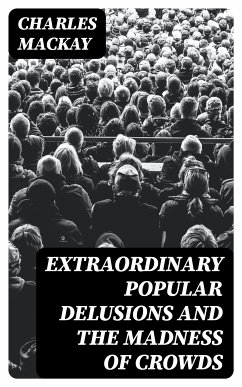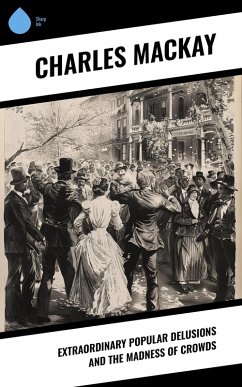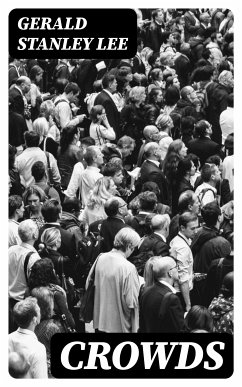
Extraordinary Popular Delusions and the Madness of Crowds (Complete Edition: Volume 1-3) (eBook, ePUB)

PAYBACK Punkte
0 °P sammeln!
In "Extraordinary Popular Delusions and the Madness of Crowds," Charles Mackay presents an incisive inquiry into the psychology of collective behavior and the phenomena of madness that often grips society. Composed of three comprehensive volumes, this work meticulously chronicles episodes of financial folly, superstition, and social obsessions, from the South Sea Bubble to the tulip mania. Mackay's prose is both engaging and didactic, blending anecdotal narratives with thorough analysis, capturing the reader's imagination while providing a deeper understanding of the irrational behaviors that ...
In "Extraordinary Popular Delusions and the Madness of Crowds," Charles Mackay presents an incisive inquiry into the psychology of collective behavior and the phenomena of madness that often grips society. Composed of three comprehensive volumes, this work meticulously chronicles episodes of financial folly, superstition, and social obsessions, from the South Sea Bubble to the tulip mania. Mackay's prose is both engaging and didactic, blending anecdotal narratives with thorough analysis, capturing the reader's imagination while providing a deeper understanding of the irrational behaviors that dominate human experience. Amid the fervor of the 19th century, when the Industrial Revolution was fueling social change, Mackay situates these events as manifestations of human folly, echoing historical patterns of insanity driven by crowd mentality. Charles Mackay, a Scottish journalist and novelist, was uniquely positioned to explore these themes due to his extensive background in journalism and social commentary. His experiences witnessing the speculative excesses of his time, combined with a profound interest in human psychology and history, equipped him to delve into the intricacies of crowd dynamics and their often disastrous consequences. Mackay's blend of empirical observation and literary flair positions him not merely as a recorder of events, but as a keen critic of the societal trends he examined. Highly recommended for scholars and casual readers alike, this seminal work remains a vital exploration of societal behaviors that resonate to this day. Mackay's analysis serves as a cautionary tale for contemporary audiences, urging a reflection on current trends in collective behavior and a careful consideration of the forces that guide public sentiment. Dive into this remarkable analysis to better understand the motivations behind the phenomena that continue to shape our world.
Dieser Download kann aus rechtlichen Gründen nur mit Rechnungsadresse in A, B, BG, CY, CZ, D, DK, EW, E, FIN, F, GR, H, IRL, I, LT, L, LR, M, NL, PL, P, R, S, SLO, SK ausgeliefert werden.













